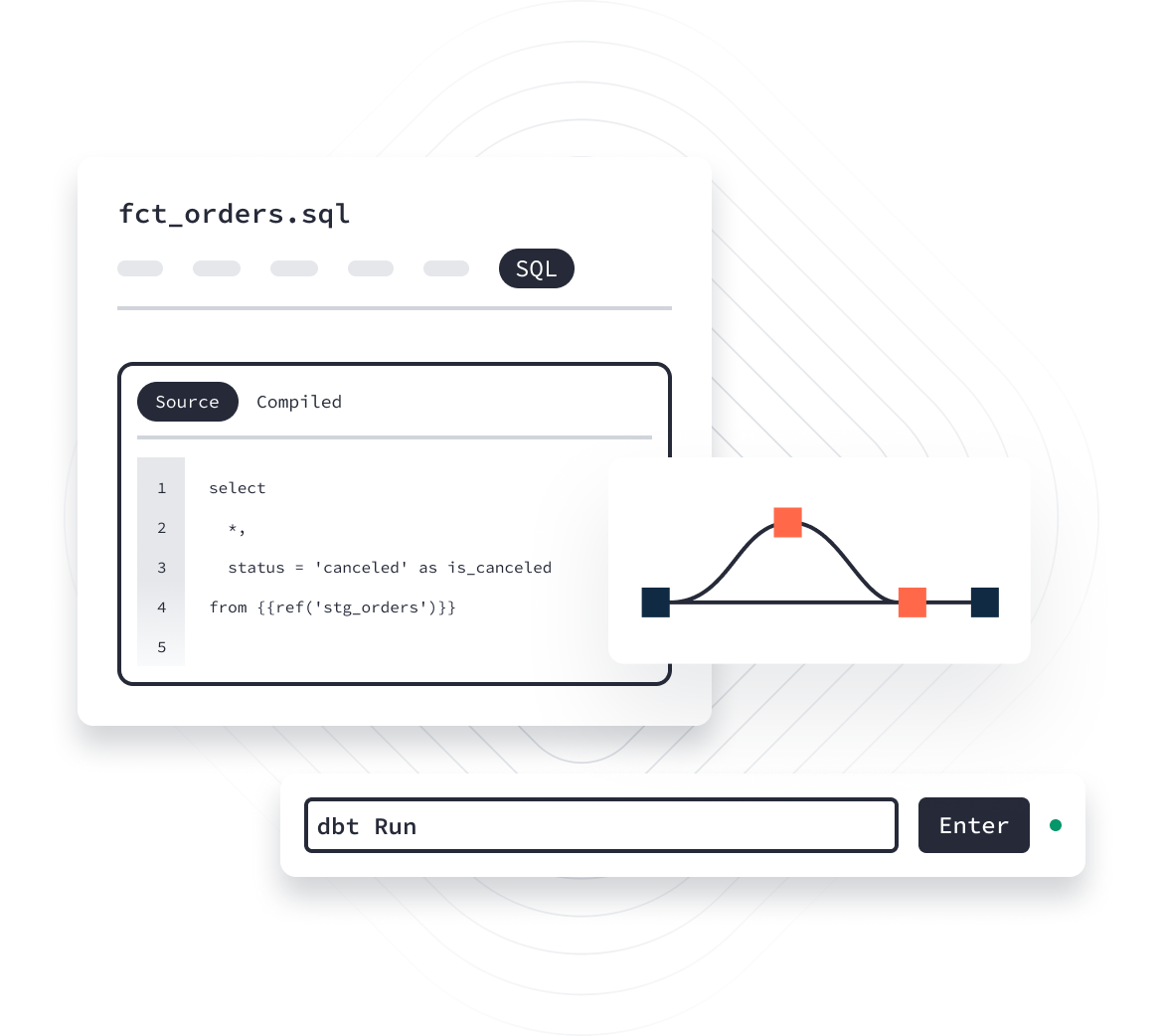Modern data teams trust dbt
Streamline your data transformation process, reduce errors, and increase productivity with dbt.

Trusted by the best data teams

What is dbt?
dbt is a fully-managed platform that streamlines data transformation for modern data teams. With features like a web-based IDE, job scheduling, and built-in collaboration tools, dbt makes it easy to develop, test, and deploy data models efficiently across your data warehouse, ensuring trusted, actionable insights at scale.
Introducing the Analytics Development Lifecycle
The Analytics Development Lifecycle (ADLC) is a step-by-step framework for building and managing data projects with consistency and scalability. Discover how the ADLC can optimize your analytics workflows and drive better decision-making. Read the guide for more information.

dbt capabilities
dbt standardizes your approach to data modeling so you can ship trusted data faster. Learn how dbt capabilities help you transform data faster, cheaper, and more reliably.
Plan
Manage decentralized data models at scale with dbt Mesh, enabling collaboration, consistency, and governance across teams for more efficient data workflows.
Learn moreDevelop
Collaborate and build data models seamlessly with a web-based IDE for testing, version control, and data transformation within your warehouse.
Learn moreDeploy
Automate your data workflows with dbt Cloud, enabling you to schedule, monitor, and manage data transformation jobs effortlessly across your team.
Learn moreTest and observe
Ensure data quality with automated testing, data health monitoring, and real-time alerts for any issues in your transformations.
Learn moreDiscover
Navigate and visualize your data models with dbt Explorer, making it easy to trace data lineage and understand dependencies across your data ecosystem.
Learn moreAnalyze
Centralize and standardize your business metrics with the dbt Semantic Layer, ensuring consistent, reliable insights across teams and tools.
Learn moreWhy teams love dbt
Talk to an expert to see dbt in action
Book a custom demo to learn how you can reduce costs, ship data products faster, and build trust with dbt. Meet with a dbt expert to see dbt in action and ask questions.
Develop faster
Deliver quality analytics faster with automation, modularity, and repeatability.
Build data quality and trust
Guarantee the reliability of business metrics with automated testing, documentation, and transparency.
Unite your team
End bottlenecks and silos with development that lets analysts and data engineers work together.














